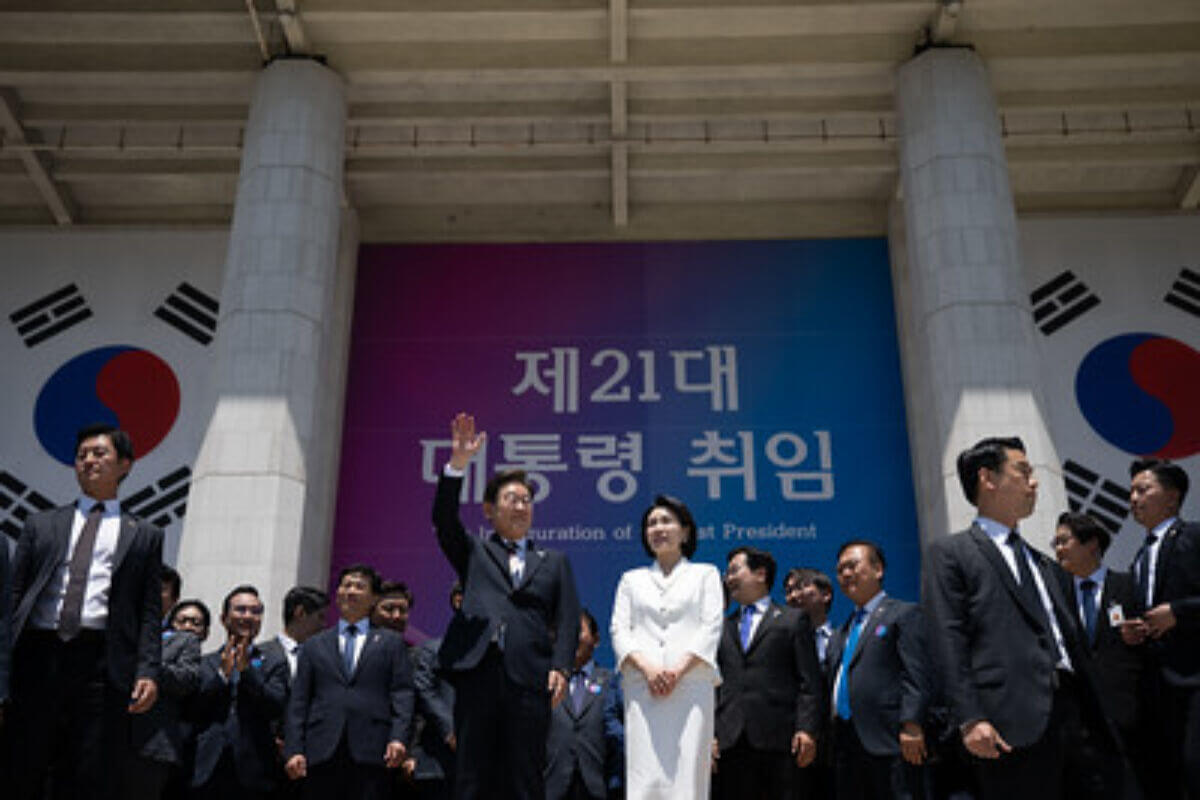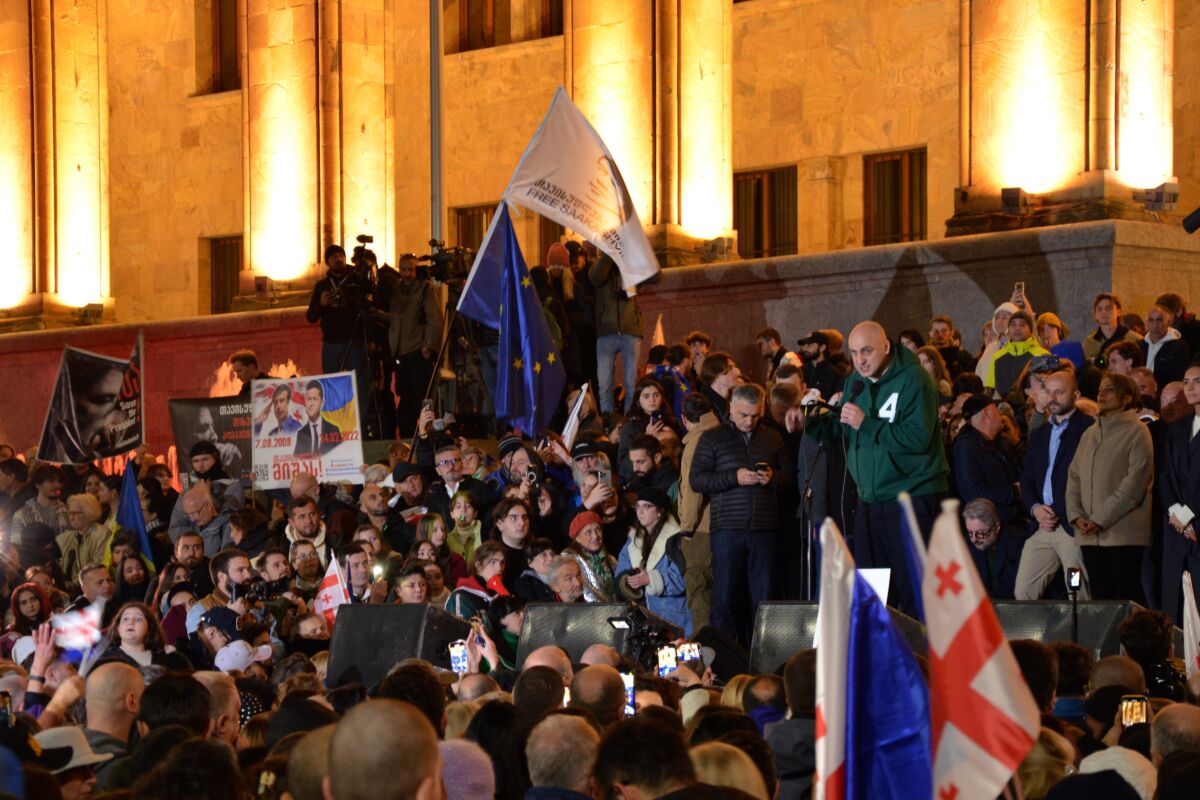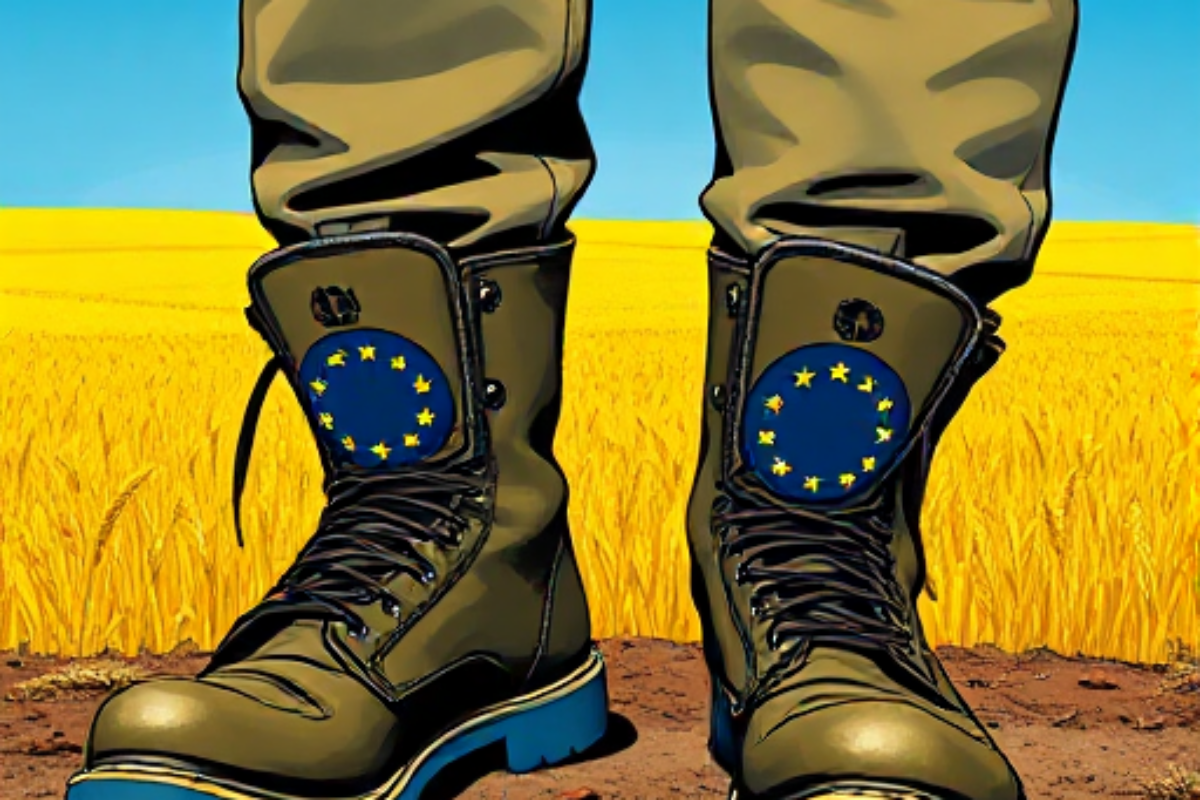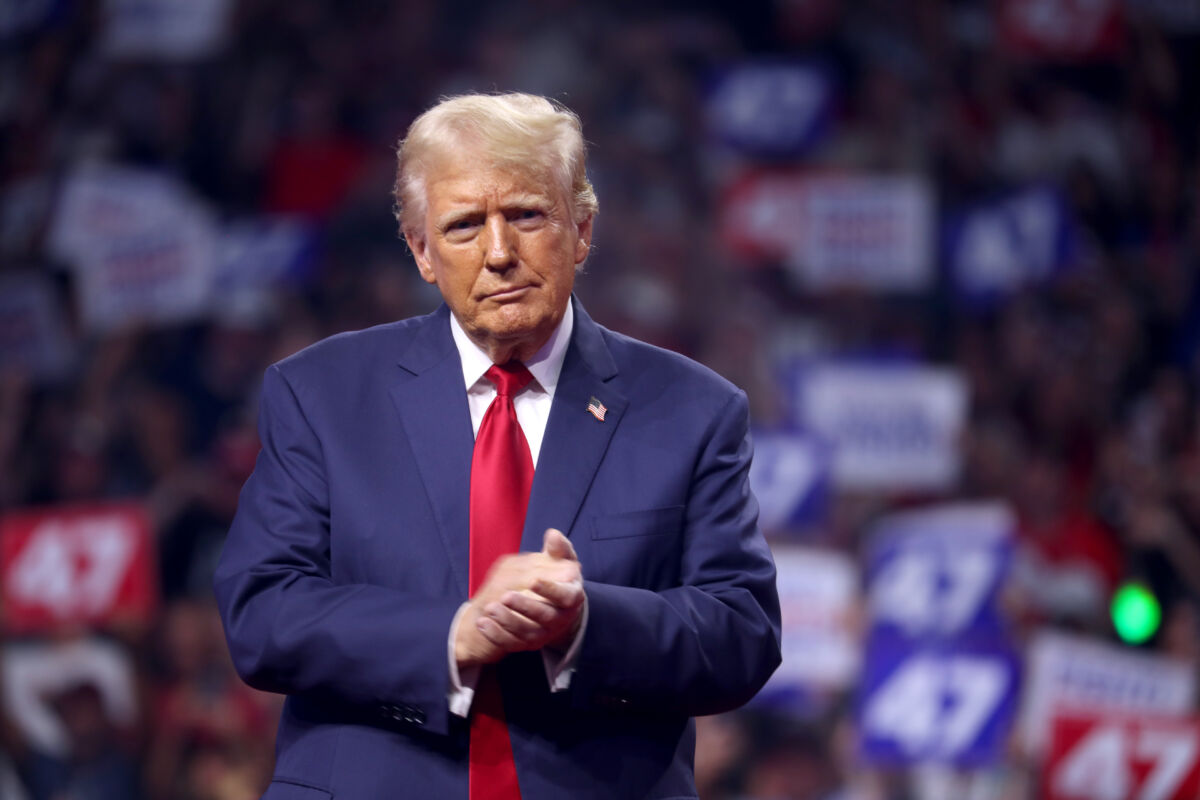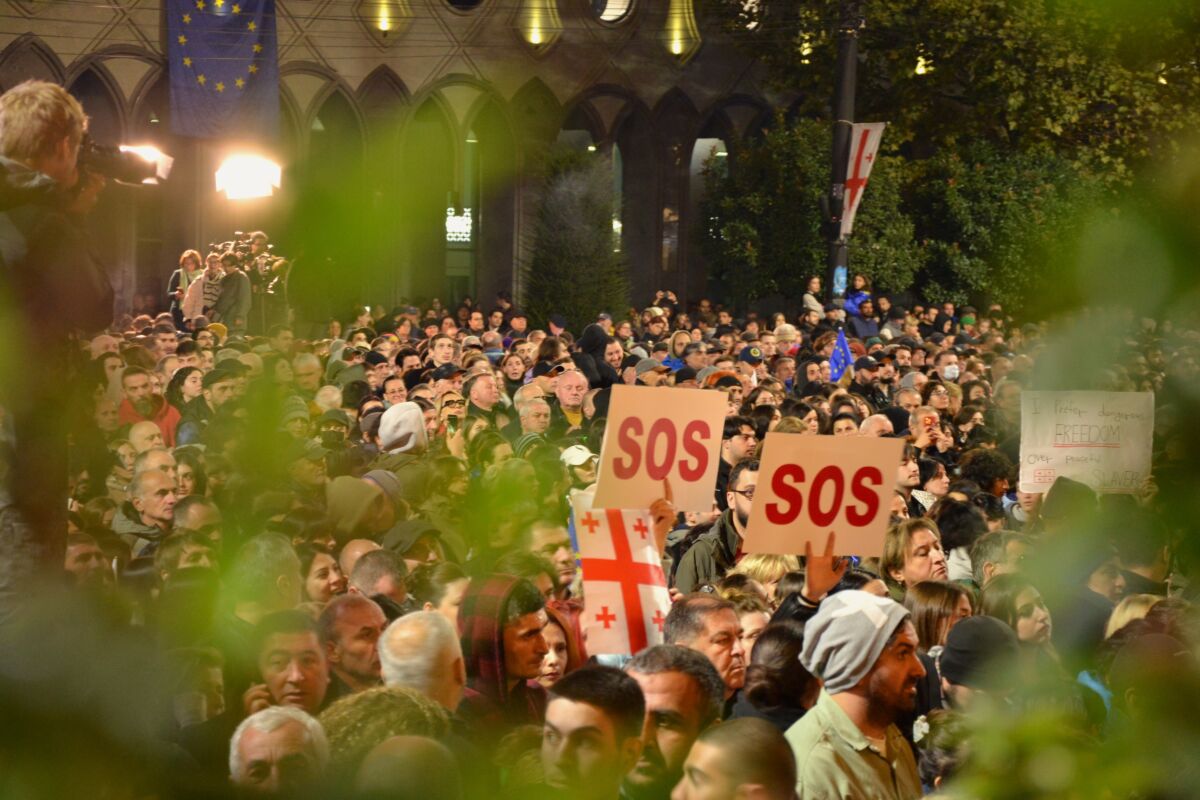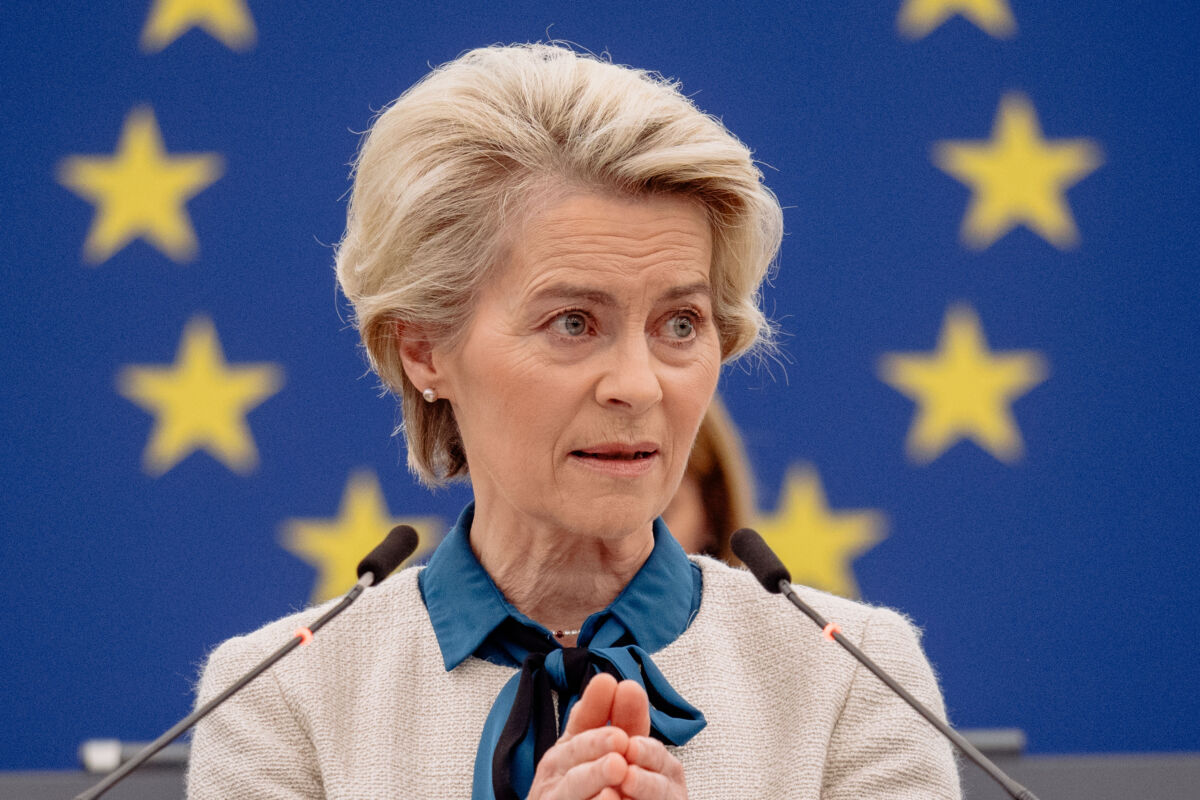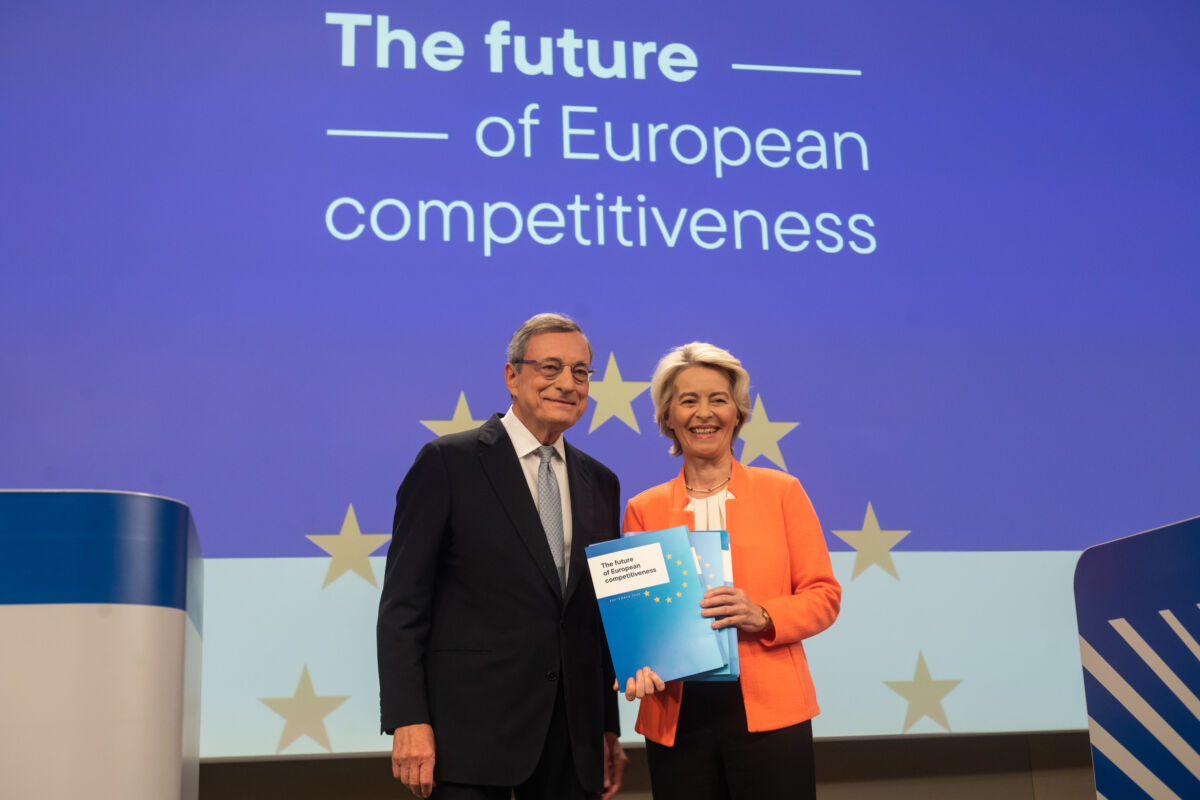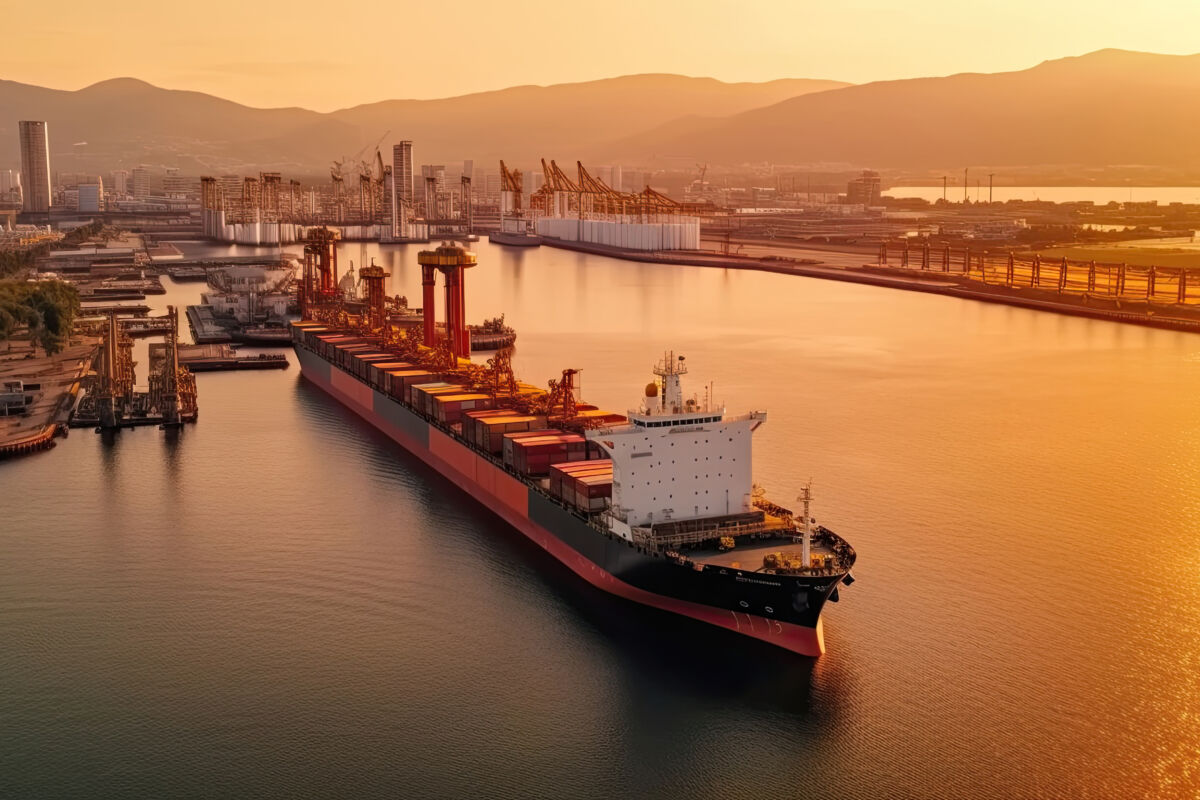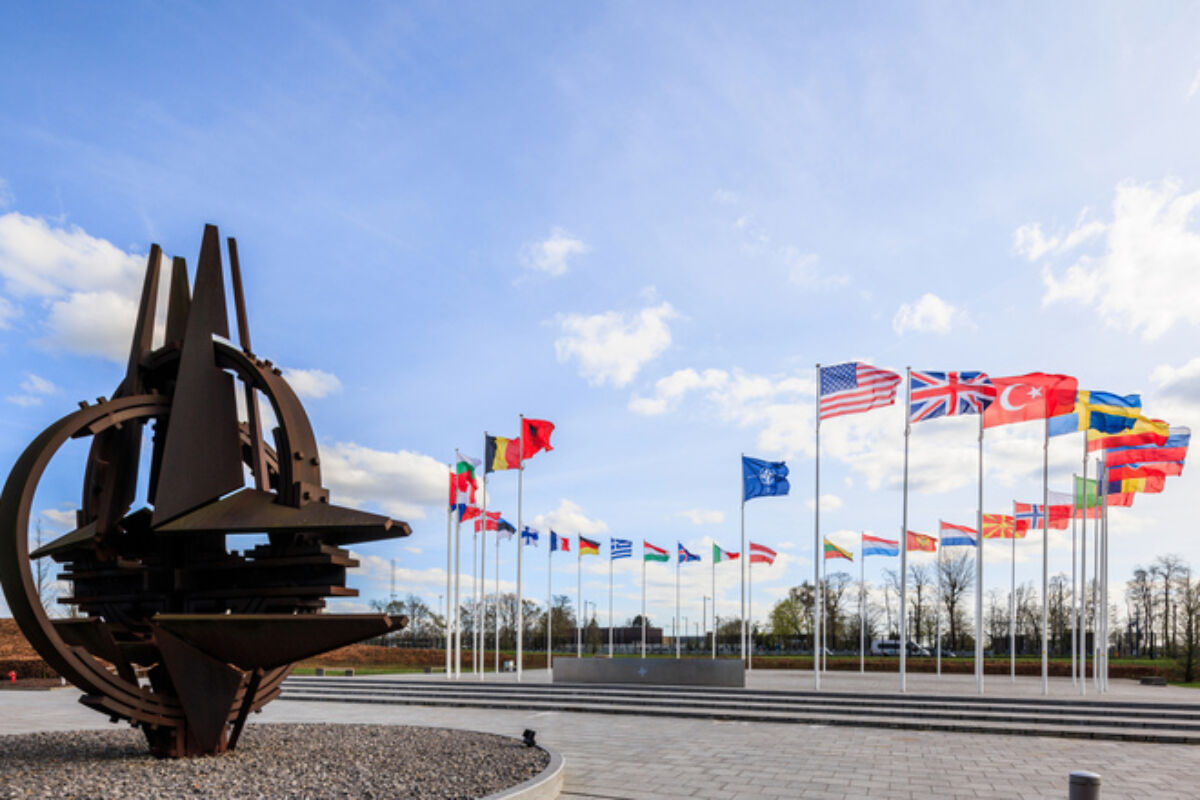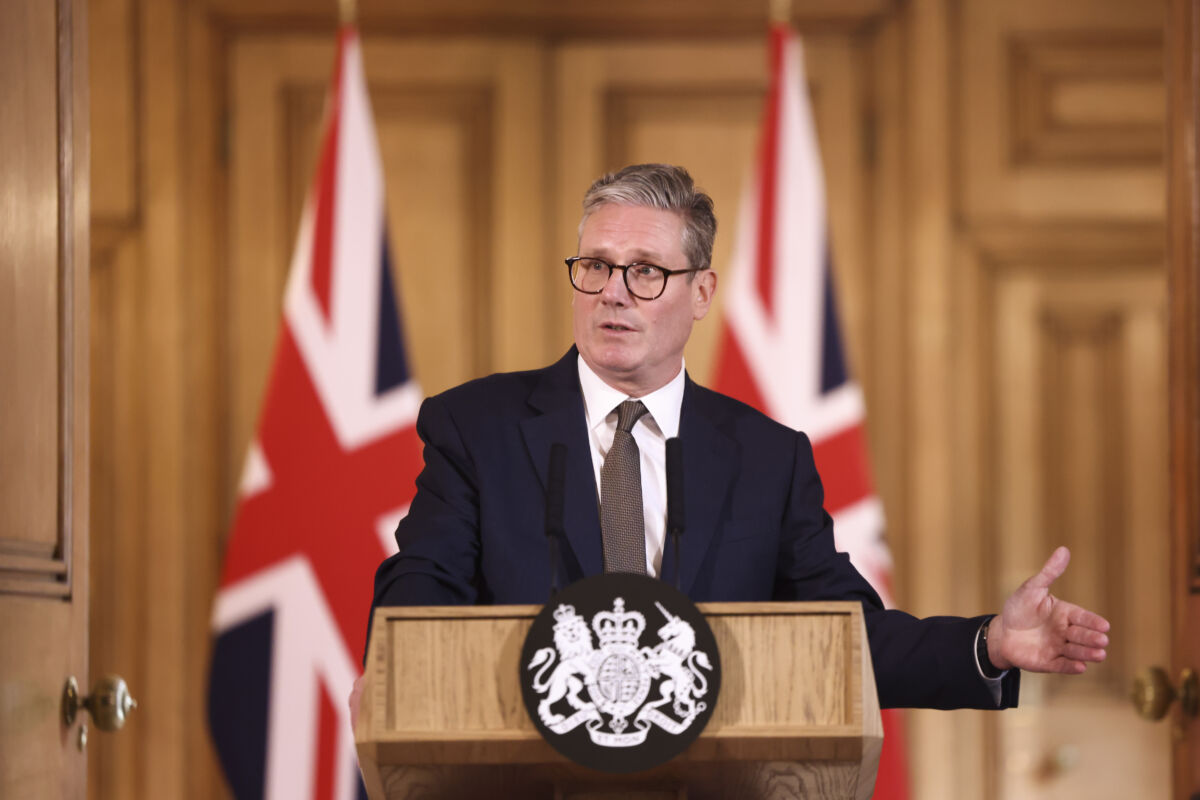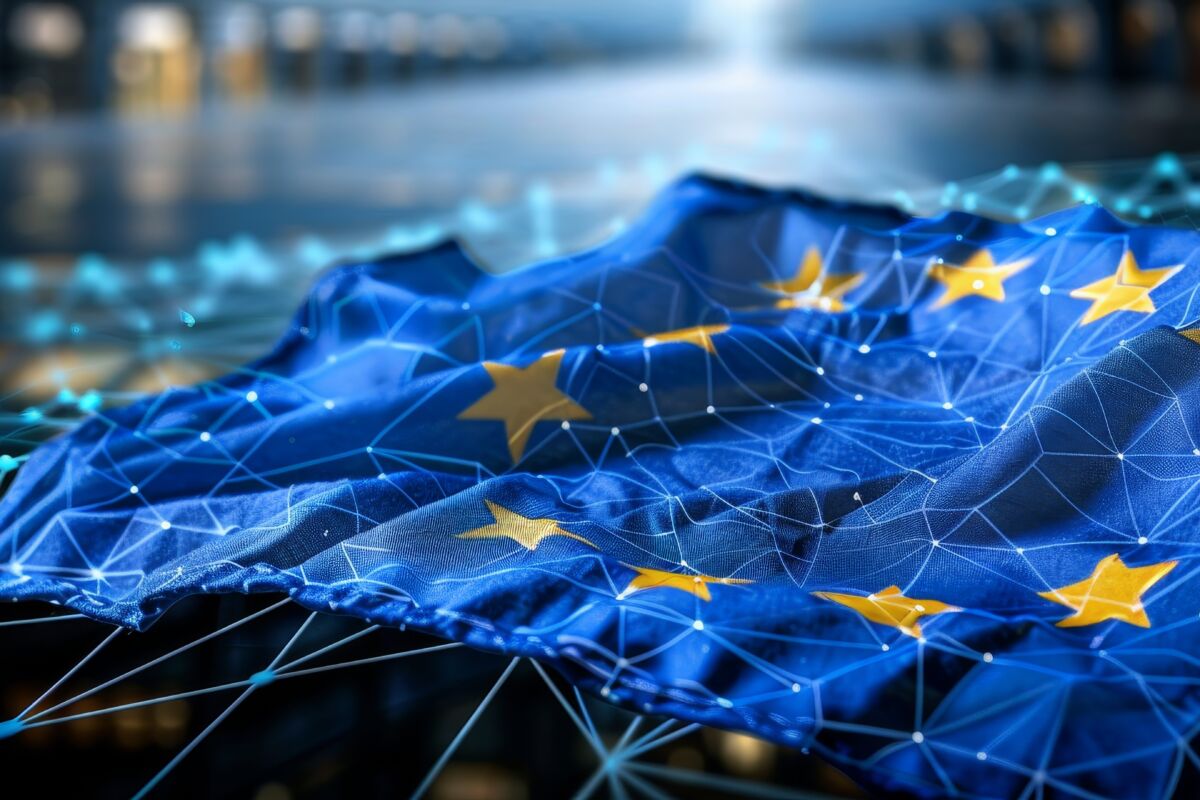After last week’s Democratic National Convention (DNC), Europeans may start studying the polling data coming out of rural Pennsylvania or Michigan to gauge their fate. While recent polling suggests President Biden’s decision to pass the torch has provided a much-needed boost to the Democrats, that doesn’t negate the real possibility of a second Trump presidency.
Rather than frantically trying to read the tea leaves, Europeans should instead look to candidates’ recent records as well as their national convention performances to understand how they see the future of US foreign policy – and how it will impact transatlantic security, trade and climate cooperation.
On European security – two possible futures hang in the balance
Europeans currently face two major security challenges: Russia’s war in Ukraine and instability in the Middle East.
On Ukraine, there’s been much talk in Europe about the potential consequences of a second Trump presidency and what the future of European security might look like with ‘less America’. Based on his past record and his current campaign platform, Trump will continue his isolationist, transactional and unilateralist agenda if re-elected. Trump’s comments about NATO throughout his current campaign have heightened the discourse about ‘Trump-proofing‘ Europe.
Trump’s return raises critical concerns about American disengagement in Europe and what this means for Ukraine. Europe’s initial response quickly revealed the dismal state of European defence and Europe’s continued reliance on the US.
Harris, though, has made it abundantly clear that she stands with Ukraine. While her European experience is limited, her national security advisor, Phillip Gordon, is a known transatlanticist who worked on European affairs during Obama’s first administration. She will continue Biden’s policies on Ukraine but Europe’s reliance on US security guarantees and wavering US Congressional support for Ukraine is just one key reason why the EU must continue investing in European security and defence.
On Gaza, a divided EU has been unable to muster a strong, common position. Harris underscored her support for Israel while also condemning Palestinians’ plight during her DNC acceptance speech. This may reveal her closest advisors’ less-interventionist vision for American foreign policy and her own focus on human rights. It’s also a modest departure from the Biden Administration’s Israel policy. Meanwhile, Trump’s focus has recently shifted to ending the conflict – with his concern now being ‘bad public relations’ for Israel.
If Harris heeds progressive Democrats’ calls to adopt a stronger position in support of Palestine, Europeans may get the political nudge they need to collectively support a permanent ceasefire. A Trump presidency, though, could exacerbate EU disunity. Regardless of who wins, the EU must remain a champion of peace and international law – admittedly easier to do with Harris.
All these uncertainties bolster the case that the EU should build back a European grand strategy. Before the next Presidential inauguration, the EU must revisit its Global Strategy, earmark more money for peace and diplomacy under the next Multiannual Financial Framework and work towards establishing a genuine European Defence Union.
Trade and economic security – much less clearcut
Under Biden, the US dramatically expanded its economic security toolkit, building upon various Trump-era economic instruments to compete with China. This, coupled with a focus on domestic competitiveness and industrial policy, will likely remain under a Harris-Walz administration. The European Commission’s recent push towards a bloc-wide economic security strategy partly reflects what’s going on in the US, as well as recognising the strain caused by Chinese exports on European markets.
The Biden administration’s post-neoliberal approach to industrial policy and trade has also led the EU and US to clash a few times since 2020 – particularly over the Inflation Reduction Act (IRA). Harris played a key role in delivering this agenda and her selecting pro-labour Tim Walz for VP is another signal that she’ll continue working to re-shore and bolster American manufacturing and innovation. Consequently, the EU should leverage its existing channels in the Trade and Labour Dialogue (TALD) and the Talent for Growth Taskforce to work towards developing complementary and – ideally – aligned pro-worker policies.
Trump has maintained his zero-sum vision of trade and will likely keep it. Trump and J.D. Vance’s RNC speeches both referenced their rejection of free trade, with Trump alleging that the US has ‘long been taken advantage of by other countries’, even ‘so-called allies.’
If Trump returns, coercive economic tools would likely be wielded even more aggressively against China – with unclear spillover effects on the EU. Biden’s ‘small yard, high fence’ approach could be replaced by more maximalist export controls and sanctions which could negatively impact European companies. Regardless of the election result, there will be no avoiding discussions on aligning – or at least deconflicting – EU and US economic security initiatives.
Regardless of who wins, Brussels should brace itself for additional EU-US trade frictions. To maintain robust transatlantic trade and investment, both sides must communicate openly about their economic security and industrial policy strategies. Both should continue investing in forums like the EU-U.S. Trade and Technology Council to facilitate high-level and working-level discussions on trade, economic security and digital policy.
Climate and multilateral cooperation – areas of stark contrast
Trump (in)famously withdrew from the Paris Agreement shortly after entering office, signalling his hostility towards international climate collaboration.
As Senator, Harris was vocal about climate. She voted against the 2020 U.S.-Mexico-Canada Agreement due to a lack of adequate environmental provisions and co-sponsored the Green New Deal. Her DNC speech took a new approach to climate, interweaving it with the concept of ‘freedom’ – flipping a term historically associated with the Republicans.
Rather than Trump’s war on climate policy, Harris’ administration may more openly discuss climate-related issues with the EU – including the Global Arrangement on Sustainable Steel and Aluminium or the Critical Minerals Act. Her leadership could also accelerate the use of trade tools to pursue climate policy goals, something the EU spearheaded with the EU ETS and could collaborate on with a new administration.
For EU leaders – there’s no time to spare
This summer’s events have shown that anything can happen, even with fewer than 70 days left until election day.
Though campaign politics can be fickle, Europeans must decide now how to approach the new administration in line with their priorities and use their combined diplomatic heft to convince the Presidential transition teams to continue sustained engagement in and with Europe.
By shedding its wait-and-see mentality, the EU can finally demonstrate that it’s ready to be the geopolitical actor it has aspired to be for half a decade.
This CEPS Expert Commentary is a part of an ongoing series running throughout 2024 to mark key global elections during a year when around half of the world’s population will be heading to the polls. You can read the other commentaries in the series here.






